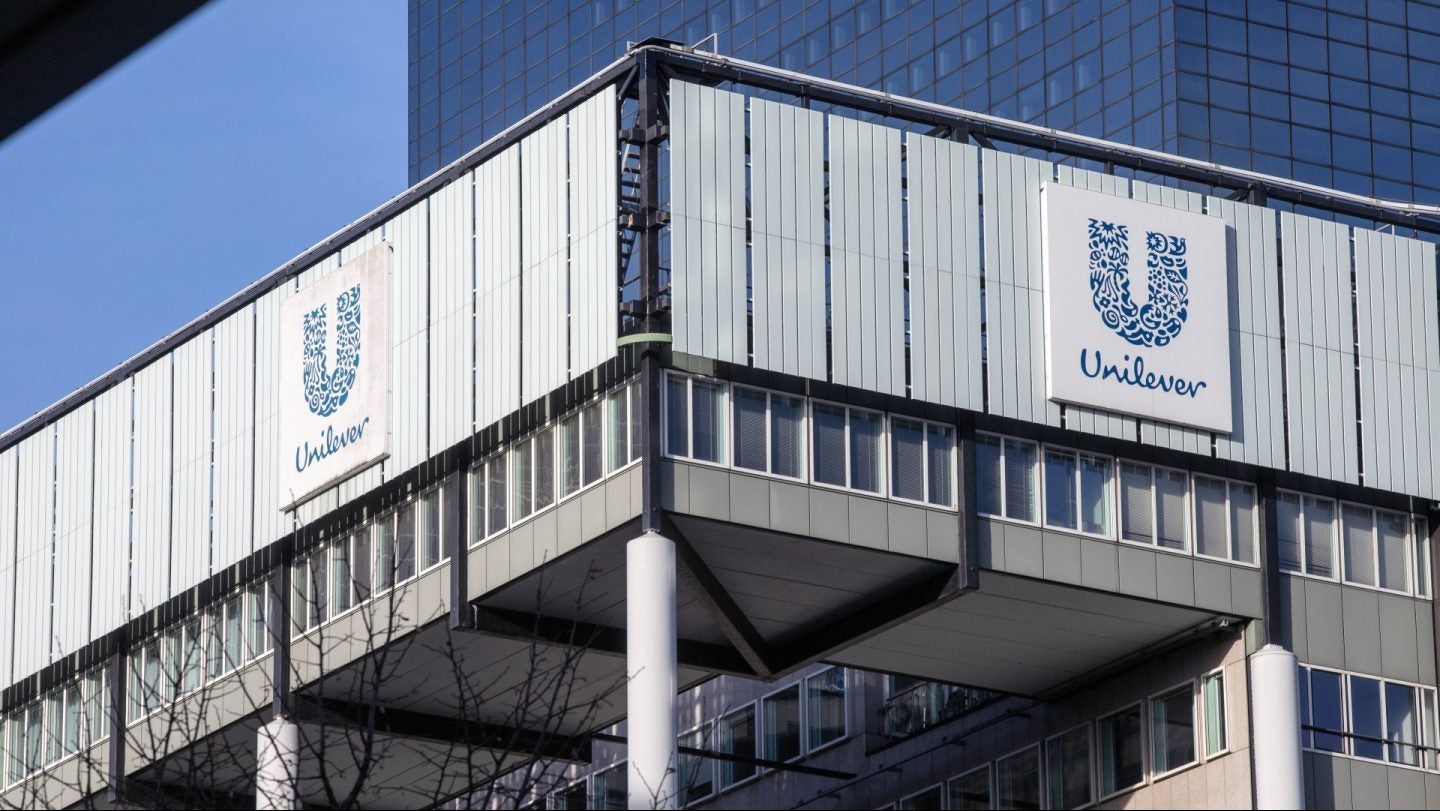

Alongside our daily news coverage, features and interviews, the Just Food team sifts through the week’s most intriguing data sets to bring you a round-up of the week in numbers.
The stand-out news piece this week was Unilever’s move to spin-off ice cream from the FMCG giant into a separate listed business, although a concrete decision on the exact point of direction is not due until the end of 2025.
General Mills, meanwhile, reported third-quarter results showing strains on sales for the snacks to pet-food maker due to high comparisons in prior quarterly periods linked to the positive effect from inflation-induced pricing.
Elsewhere, cocoa prices continue to plumb new heights, suggesting higher costs for confectionery manufacturers and consumers alike.
On a brighter note for the public in the UK, grocery inflation extended an easing streak, with a note of optimism from the government statistics agency for food and soft drinks prices.
Unilever shifts ice cream
Unilever set industry tongues wagging over the London-listed FMCG major’s future in food as ice cream is destined for the chopping block.
Access the most comprehensive Company Profiles
on the market, powered by GlobalData. Save hours of research. Gain competitive edge.

Company Profile – free
sample
Your download email will arrive shortly
We are confident about the
unique
quality of our Company Profiles. However, we want you to make the most
beneficial
decision for your business, so we offer a free sample that you can download by
submitting the below form
By GlobalData
The Ben & Jerry’s brand owner put forward the most likely option as being spinning off ice cream into a separate listed company, which would leave investors with shares in two different business entities.
Post such a transaction, which might also take the alternative route of a potential sale into private-equity ownership, would leave Unilever more oriented toward beauty and home-care products. Food might just be an ill fit.
Analysts at Barclays, led by Warren Ackerman, said ice cream had been “dilutive” on Unilever’s historical performance, suggesting the spin-off “is another step to shift its portfolio more towards HPC [home and personal care]”.
The Barclays analysts wrote: “Overall, this is firm action that the market has been looking for. There will now be inevitable questions about the future of its nutrition division, which is also dilutive to growth (although not to margins). It is very clear that Unilever’s future is HPC.”
A report emerged late this week that Unilever had hired advisers to garner potential interest from private-equity investors, which might include CVC Capital Partners.
For a Just Food analysis article this week, Karel Zoete, an analyst at financial services company Kepler Cheuvreux, said a private-equity deal would be the most likely should Unilever choose a sale option for ice cream.
“I don’t see a strategic buyer. Unilever is larger than the other top five players combined,” Zoete suggested, adding that “capital gains tax implications might be significant” from a sale of ice cream.
General Mills withers
The US food business reported another quarter of falling sales as the effects of double-digit price increases start to fade with cooling input-cost inflation.
Yet chairman and CEO Jeff Harmening, whilst not making any commitments to further pricing initiatives, suggested the inflationary environment is likely to spill-over into its 2025 fiscal year – from June 2024 onwards.
Nevertheless, the chief of the Buffalo pet-food brand owner hopes the situation will be more “benign”, noting inflation as it stands is “still higher than the average annual inflation rate we experienced in the decade leading up to the pandemic”.
Looking through the 2025 lens, as headline inflation in the US eased to 3.2% in February, Harmening said: “We still see an inflationary environment.
“To the extent we can have a more benign inflationary environment and a supply chain environment, we don’t see the disruptions we’ve seen, combined with good productivity, that’s a good start.
In light of Unilever’s ice-cream announcement, Harmening was challenged by analysts this week on the outlook for General Mills’ own business in the category.
“We like our ice-cream business,” he countered. “Häagen-Dazs is a great brand and that’s a super-premium brand and it’s growing nicely. It’s good in Europe, it’s really good in Asia, it’s one of our five global platforms, so we obviously like the category.”
Cocoa clouds
GlobalData, Just Food’s parent company, posed the question in an analysis piece this week, of “when might the tide turn” for record high cocoa prices.
Sukanya Nag, a food technologist and innovation and strategy consultant at FutureBridge, explained the challenges: “There are multiple factors at play in the cocoa industry, starting with poor weather conditions: El Niño is currently going on as well as drought conditions, and the effects of the Harmattan winds have worsened due to El Niño, with drier air and dry conditions.
“Then there are crop diseases that were seen across 2023. Entire crop yields got affected by them and there was a projected decline of almost 10%.”
Cocoa prices have risen more than 100% in the past 12 months, and more than double that rate further out since October 2022, preceded by a relatively benign price environment, the analysis shows.
And the global production output looks gloomy.
One of the world’s largest chocolate producers, Lindt & Sprüngli, gave some insight to the challenges: “Cocoa beans, sugar, and milk are among our most important raw materials.
“These raw material prices are always subject to fluctuations and rising costs are a challenge. This applies in particular to our most important raw material, cocoa, the price of which almost doubled over the course of the last year, reaching a new all-time high on the London commodity futures exchange.”
Lactalis boosts Portugal presence
France-based dairy major Lactalis struck a deal to acquire Portugal’s Sequeira & Sequeira, the owner of the Paiva cheese brand.
Sequeira & Sequeira moved into food production in 1992 when it bought cheesemaker Lacticínios do Paiva. Lactalis takes control of Lacticínios do Paiva’s dairy production and also the wholesale operations of Sequeira & Sequeira in Portugal.
The acquisition will increase the number of Lactalis’ factories in Portugal to two.
Sequeira & Sequeira produces cheeses ranging from traditional flamengos and curados to fresh cheese, under the main brand Paiva.
Miguel Romão, general manager of Lactalis’ business in Portugal, said: “We are delighted with the coming together of these two family businesses, driven by common values. It will enable Lactalis to develop the production and sale of local cheeses in Portugal and will therefore complement its existing offer in the country.
“The wholesale activity will allow us to strengthen distribution and export activities.”
Brothers José Sequeira and António Sequeira took over the business founded by their father.
In a joint statement, they said: “This agreement with one of the world’s leading dairy companies recognises the hard work of all the workers of both Sequeira & Sequeira and Lacticínios do Paiva, as well as the quality of its operations and exceptional products.
“We are sure that Lactalis will continue to develop its activities and embrace the growth opportunities that lay ahead.”
UK food price trend
While food and soft drinks prices in the UK remain historically higher at 5%, they are heading in the right direction, easing the household burden somewhat.
Grocery prices for those categories have now cooled for 11 consecutive months, reaching the lowest annual rate in February since the opening month of 2022. That brings more relief from the lofty peak of 19.2% hit in March last year, which by Office for National Statistics (ONS) records was the highest in more than 45 years.
The ONS said: “Prices have been relatively high but stable since early summer 2023, rising by less than 2% over the nine months between May 2023 and February 2024. This compares with a sharp rise of around 22% seen over the previous 14 months between March 2022 and May 2023.”
Karen Betts, CEO at UK industry body the Food and Drink Federation, said the further cooling in the annual rates is promising and “reflects prices stabilising across food and drink supply chains, including energy, alongside manufacturers’ continued and sustained efforts to keep prices down for shoppers”.
She added: “Food and drink price inflation should continue to ease in the coming weeks. But some underlying factors are acting against this, from rising labour costs to erratic weather patterns, like this winter’s heavy rainfall across the UK which is impacting agricultural crop yields.”

